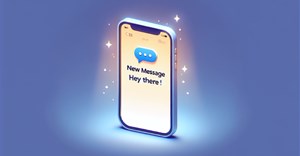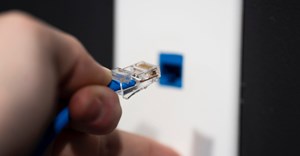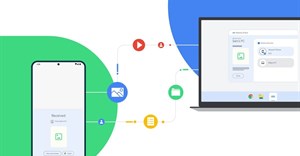
Subscribe & Follow
Jobs
- Head of Digital Johannesburg
- Social Media Specialist Johannesburg
- Digital Brand and Marketing Manager Cape Town
- Digital Projects Administrator Pretoria
- Mid-level SEO Specialist Cape Town
- Digital AI Intern Cape Town
- Copywriter Cape Town
- Junior Copywriter Cape Town
- Digital Designer Cape Town
- PR and Digital Content Writer Sandton
Developers need to gear up for a multi-device world
Now, a couple of years later, multi-screen and multi-device use is even more of a reality. But how does this technological evolution affect developers?
In short, a multi-screen world can be a real headache for developers. As technologies become more interconnected and reliant on each other, compatibility issues come to fore. Currently, there are various operating systems running on various devices and these do not always 'talk' to one another. This can give rise to system bugs, or incompatibility issues, where two separate operating systems simply cannot be integrated or used cooperatively.
Devices need to "talk" to one another
As it is, there is confusion with operating system and browser versions, many of which are incompatible. FNB has notified all clients that they will no longer support IE 8, for example. This will exacerbate the complexity of connectivity or single front ends where browsers or operating systems must be aligned and backward compatible.
Furthermore, coding on specific devices is subject to different rules. One cannot use the same code or language to write an application for a laptop as one would for a smartphone. Because the devices essentially serve separate functions, and have disparate interfaces, coding rules need to be specific to each type of device.
This is problematic. Trying to make all these various screens talk to each other would mean either "dumbing down" the more intelligent devices and technologies, or making the simpler, more user-friendly devices and technologies more difficult to use. And again, the issue of different devices running on disparate operating systems comes in.
Single operating system
One such solution, of course, would be large-scale, across-the-board standardisation. Currently, Google is trying to promote the use of a single operating system (Android) across various devices. Google envisions the multi-device future of computing culminating in something that is a great experience across many different devices, from 'the watch to the TV to the laptop to the tablet to the phone'.
According to Larry Page, Google's chief executive, in a recent interview, "If we're reasonably clever and thoughtful about what we do, we can get experiences that make sense to users and are reasonably easy for developers to implement."
Sundar Pichai, Google's senior vice president in charge of Android and Chrome, believes that when it comes to a "multi-device world" we are just at the beginning stages. In the same interview, he explains, "Today, computing mainly automates things for you. But there's an evolution from today, where we tell computers to do stuff for us, to where computers can actually do stuff for us. For example, if I go and pick up my kids, it would be good for my car to be aware that my kids have entered the car and change the music to something that's appropriate for them."
Integrating other devices
Considering a car as a 'device' capable of being integrated with other 'devices' as we currently understand them, is very much in line with the vision of an integrated future - as in The Internet of Things (IoT). So if Google is already making plans to integrate Android into technologies previously not regarded as 'devices' (such as automobiles), then it is something developers need to start considering.
Let's face it, the use of a single platform across all devices is utopic, and will probably remain so in the face of competition, despite consolidation efforts. So developers need to come up with creative and solid methods to ensure device compatibility, regardless of whether the device is a tablet or a refrigerator - and regardless of the operating system the device is running on.
At least, it seems, regarding the last point, that the operating system providers are working together to ensure seamless cross-platform use. As Pichai states, "We deeply desire our services to work for everyone. And that inherently means we have to work with partners. That is the thesis underlying everything we do. That's why our services work on iOS."


















